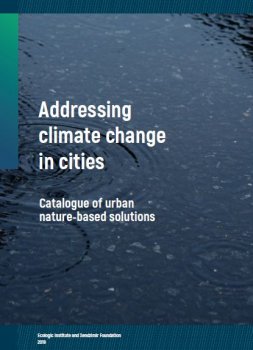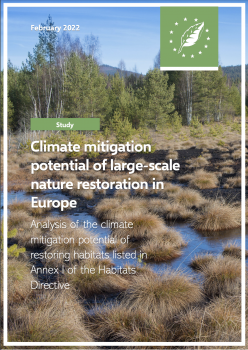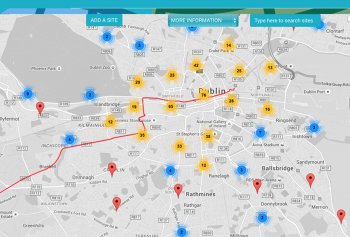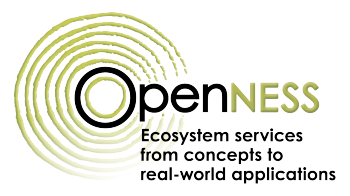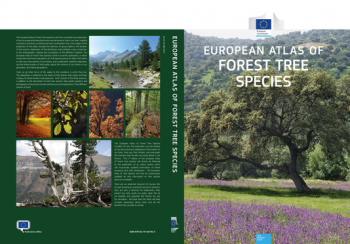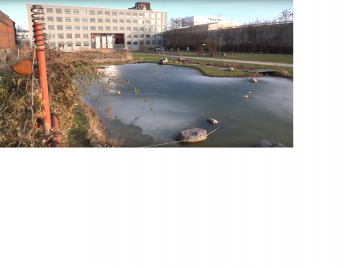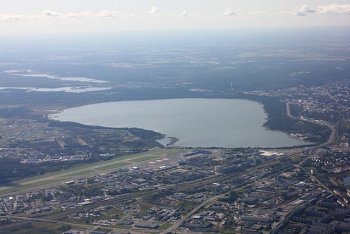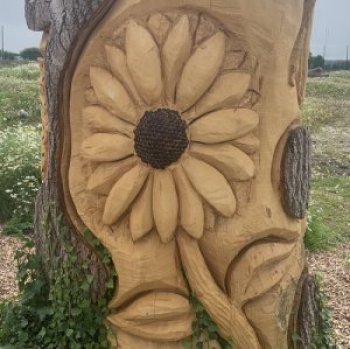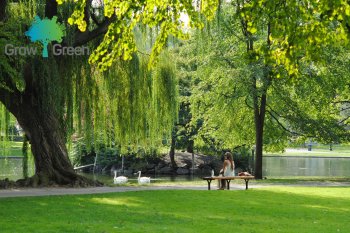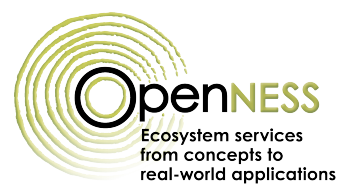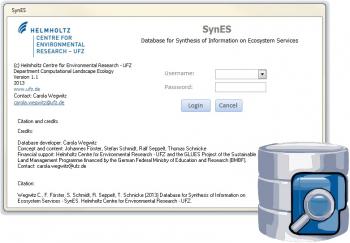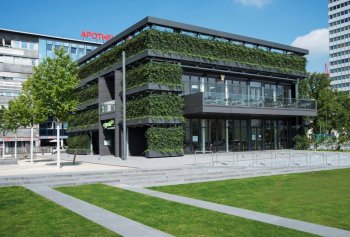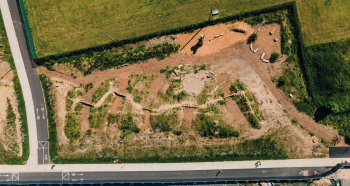Marketplace
Addressing Climate Change in Cities – Catalogue of urban nature-based solutions
Nature-based solutions (NbS) are solutions that are inspired and supported by nature. They can be used in urban settings to complement or replace "traditional" or "grey" solutions to perform functions, such as thermal insulation and stormwater retention and filtration. Focusing
Climate mitigation potential of large-scale nature restoration in Europe
This report, produced by the IEEP and commissioned by the WWF, explores the climate mitigation potential of restoring the habitats protected under the EU Habitats Directive. As part of this, the feasibility of ranking these habitats based on the climate mitigation benefits of their restoration is
Space Engagers
Methodology (including online tool) for opening up underused real estate assets in the urban core to local ideas and engagement.
OpenNESS Synthesis paper: Ecosystem service trade-offs and synergies
Despite its popularity, the intuitive definition of 'ES trade-offs' and its antonym 'ES synergies' lack conceptual clarity. When moving from theoretical concepts towards scientific comparison, more analytic definitions are required. In this SP, we further explore the trade-offs
- Guidance
- Web platform
UrbanByNature: The global programme for urban nature pioneers
UrbanByNature is a facilitated capacity-building programme promoting exchange among cities, researchers, SMEs and NGOs to build bridges with the Nature-Based Solutions communities across Europe, Asia, Latin America, and other interested regions. Through this facilitated expertise-sharing and
European Atlas of Forest Tree Species
The European Atlas of Forest Tree Species is the first comprehensive publication of such a unique and essential environmental resource, that is, our trees.
Az esővízhasznosítás és szürkevíz újrahasznosítás lehetőségei a klímaváltozás hatásainak csökkentésében
A klímaváltozás okozta hidrogeológiai kockázatok miatt az európai városok egyre gyakrabban szembesülnek a kapcsolódó problémákkal, akár hirtelen áradások vagy éppen a vízhiány képében. A Körforgásos Városi Vízgazdálkodás projekt (CWC) célja hogy segítse a városokat az elavult városi infrastruktúra
Planning and delivering Nature-based Solutions in Mediterranean cities. Summary for policy-makers
This document higlights key findings from the report "Planning and delivering Nature-based Solutions in Mediterranean cities. First assessment of the IUCN NbS Global Standard in Mediterranean urban areas", and should be read in conjunction with the full report. References to research and
Seedbed Intervention: Tallinn
The City of Tallinn’s seedbed intervention took place on the 10th September 2022 at Vormsi park’s green area in Lasnamäe district. There were guided walks organised in two languages - Estonian and Russian, in order to engage residents with different nationalities. Both walks were guided by two
The Little Book of Investing in Nature: A simple guide to financing life on Earth
The Little Book of Investing in Nature aims to energise that dialogue by clearly laying out options for financing biodiversity conservation. While some measures to protect biodiversity may come at an economic cost, others are likely to generate strong returns, economic and otherwise. This book
Green space and mortality in European cities: a health impact assessment study / The Lancet Planetary Health
Natural outdoor environments including green spaces play an important role in preserving population health and wellbeing in cities, but the number of deaths that could be prevented by increasing green space in European cities is not known. This study aimed to estimate the number of natural-cause
URBAN GreenUP Barriers and Boundaries Identification
This deliverable investigates the experiences and approaches of the URBAN GreenUP cities with the identification of the barriers and boundaries in terms of implementation of Nature-Based Solutions. It provides detailed descriptions of potential barriers and boundaries under the following
GrowGreen Cities Posters
What did the GrowGreen cities achieved? The progress of the different GrowGreen Cities during the last 5 years is summarised in these posters, which illustrate the most relevant results within the project.
OpenNESS Synthesis paper: Non-monetary valuation
To increase the applicability of NMV it is necessary to clarify the boundaries and the terminology of the field, and address considerations with regard to the context-specificity of non-monetary techniques.
Database for Synthesis of Information on Ecosystem Services (SynES)
SynES is a database that was developed to synthesis site-specific biophysical and socio-economic information on ES. It allows a consistent integration of information by multiple users and from multiple sources. It is a flexible tool that can be used within an individual ES assessment/project or if
Building on nature: Area-based conservation as a key tool for delivering the SDGs
The guidance has been developed in a global partnership by IEEP, IUCN World Commission on Protected Areas (WCPA), UN Development Programme (UNDP), the World Bank and global leading conservation organisations the Nature Conservancy (TNC), Wildlife Conservation Society (WCS) and WWF. It
- Training
Massive Open Online Course. Landscape Restoration for Sustainable Development: a Business Approach
Subscribe here: https://www.coursera.org/learn/landscape-restoration-sustainable-development We are very pleased to present to you the massive open online course (MOOC): Landscape Restoration for Sustainable Development: a Business Approach. This MOOC is the first offer of the so-called
Living Walls
Guidelines for implementing multi benefit vertical green infrastructure with living plant constructions (suitable for difficult urban locations, short time frames).
Ready 4 Climate Change
Quick check tool to activate stakeholders and their knowledge on climate change adaptation.
- ‹ previous
- 31 of 55
- next ›

